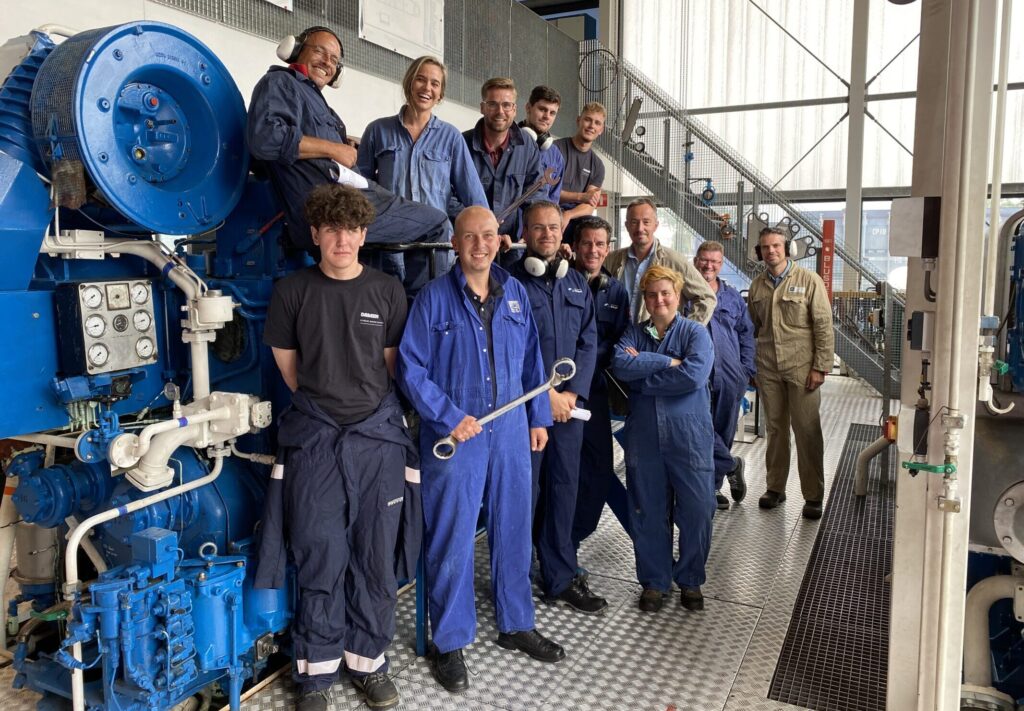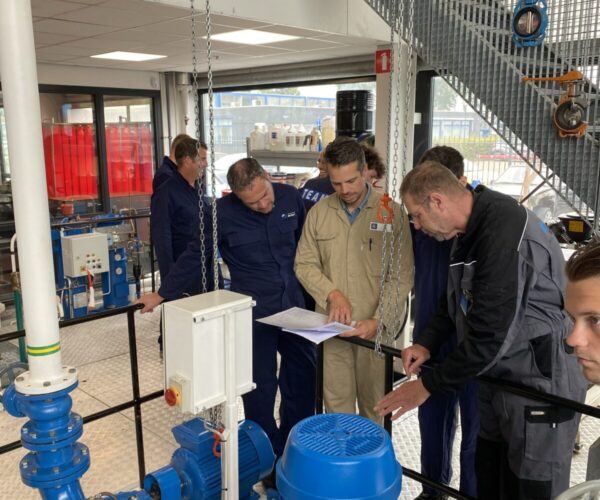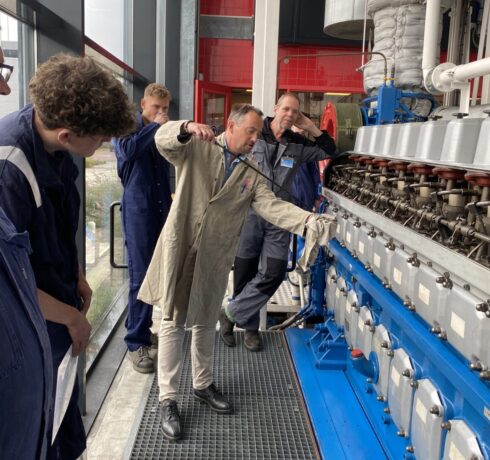The position that Damen Schelde Marine Services (DSMS) holds in the maritime market is slap-bang in the middle of the supply chain, providing its clients with a vast array of marine diesel engine parts and services. A quick look at the company’s key facts and figures demonstrates this: approximately 10,000 unique products in stock in the warehouses in Vlissingen, Singapore and Shanghai. However, in today’s highly competitive market, simply having a lot of stock doesn’t guarantee success. Clients need (and expect) additional knowledge from their suppliers. It is for this reason that DSMS organises training programmes for its personnel.
DSMS Account Manager Josine Glerum explains further: “We schedule training courses for the team for a number of reasons. By increasing our technical knowledge, we can stay up-to-date with market developments: current as well as future trends. This is how we can support our customers in the best possible way. What’s more, it sharpens our business vision, enabling us to optimise our strategic purchasing. And ultimately, this helps us stay ahead of our competitors.”
From these numerous reasons, it is ‘supporting the client’ that is perhaps the most important. For her job in Sales, internal training courses give Josine the know-how to advise her clients on which solution will best suit their operational requirements. “Each client has their own philosophy,” she says. “Some clients want more sustainable solutions with more long-term planned maintenance. Others go for more ad hoc solutions. Therefore, it’s important that I know about the benefits and characteristics of the products that we have on stock.”
 The DSMS team refreshed their knowledge of 4-stroke marine diesel engines at Scalda technical college in June.
The DSMS team refreshed their knowledge of 4-stroke marine diesel engines at Scalda technical college in June.
At the beginning of June DSMS’ European fuel part manufacturer and their coatings partner visited the company’s offices in Vlissingen to give a training course on the subject of diesel engine fuel parts coatings. “These coatings have come onto the market in response to the International Maritime Organization’s Global Sulphur Cap,” explains DSMS Purchasing Manager Stephen Huisman. These regulations came into force in 2020 to reduce the amount of polluting sulphur in maritime diesel. “The sulphur in the fuel provided a lubricating quality; when you remove this, it can lead to overheating and friction, and seizing up of engine parts,” adds Stephen. “The coatings have been developed to solve this: they are non-corrosive and anti-friction.”
The topic of stricter environmental regulations – and the subsequent uptake of alternative fuels into the market – is very relevant for DSMS and its clients. New, and more sustainable, fuels such as LNG, methanol and ammonia are entering the market. Stephen: “By following this workshop organised by our engine fuel parts supplier and coatings supplier, we can help our clients with the problems they have, and the challenges they can expect to encounter in the future.” And returning briefly to Josine’s point of ‘strategic purchasing’, Stephen adds that the knowledge that DSMS builds up by following training workshops like these brings measurable advantages. “We were expecting problems due to the 2020 Sulphur Cap so we started purchasing a year before, coating all the fuel plungers that we had on stock. This prevented lots of problems for our clients who were transitioning to the new fuels.”
 The DSMS team during their training at Scalda.
The DSMS team during their training at Scalda.
A second training day also took place in June, this time at Vlissingen technical college Scalda. This training session looked at the ins and outs of 4-stroke marine diesel engines. “Using an operational L20 and a cross-section of an R32 – two engines that are fully within our scope and for which we can provide parts and services – we refreshed our knowledge of diesel engines before going deeper into market developments and the different fuel types on the market and their effects on the engines,” says Josine.
The DSMS team was then divided into four groups, each with their own assignment relating to fuel, lubricating oil, cooling air, or cooling water systems. A notable aspect of this training session was that the whole DSMS team was represented. “We had people from our warehouse, quality inspection, purchasing and sales staff attend these trainings – all this extra knowledge will certainly come in useful for us all,” says Josine.
A follow-up training session covering the workings of 2-stroke engines has been planned for later this year. “The technical aspects of these subjects really support our sales activities – where we try to build up long-term and therefore sustainable relationships with our clients. If we can show them that we are thinking along with them, and that we have the knowledge in-house, this shows that we are a good partner and supplier of components and equipment,” concludes Josine.

